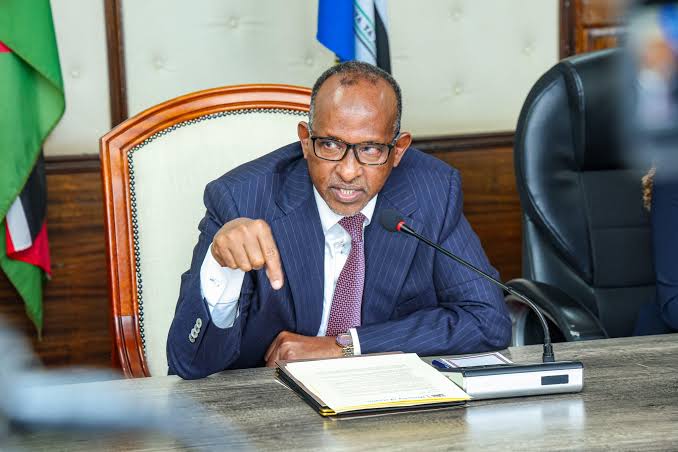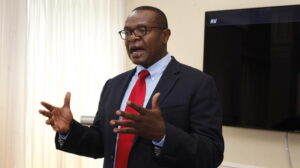Aden Duale, Kenya’s Health Cabinet Secretary, recently made remarks directed at the Nation Media Group (NMG) in response to their coverage of the Social Health Authority (SHA).
During an event held on August 8, 2025, Duale suggested that NMG should either become a health facility and register with SHA or remain a media house and avoid interfering in health sector operations.
This statement came after NMG published several critical reports on SHA’s performance since its launch in October 2024.
SHA was created to replace the National Hospital Insurance Fund (NHIF) as part of Kenya’s efforts to provide universal health coverage. It manages three funds aimed at improving access to healthcare services, including primary care and emergency treatment.
However, since its rollout, SHA has faced a number of challenges that have attracted media attention. NMG’s reporting highlighted delays in medical procedures like heart surgeries, technical glitches in the SHA system, and issues with registration processes, particularly for non-salaried members.
These reports included stories about families struggling to get timely medical care and evaluations of SHA’s progress over its first year.
Duale’s comments reflect his frustration with what he views as NMG’s overreach. He emphasized that the government has no contract with NMG as a healthcare provider and urged the media house to focus on its core role instead of interfering in healthcare delivery.
The criticism came in the context of ongoing public debates about how well SHA is performing and whether media scrutiny is fair or excessive. Duale’s remarks also come at a time when the government is trying to reinforce its commitment to the program, with President William Ruto publicly stating that SHA members should receive free treatment and medicine, and warning hospitals against charging these patients.
The issues reported by NMG, such as delays and technical faults, appear to be valid operational challenges facing SHA. For example, some hospitals have been suspended by the Ministry of Health for non-compliance related to SHA guidelines. Registration numbers in certain counties remain low, and some users face difficulties with subscription fees.
Despite these problems, the government has allocated significant funding toward SHA, even though this still covers a small fraction of the program’s full costs.
The exchange between Aden Duale and NMG highlights the delicate balance between government efforts to implement new healthcare policies and the role of the media in reporting on their success or failure.
While the government seeks to protect SHA’s reputation and support its rollout, media houses continue to report on shortcomings that affect citizens’ access to healthcare.
Both sides show a need for clearer communication and cooperation to ensure SHA meets its goals.In summary, Aden Duale’s criticism of Nation Media Group reflects tension surrounding the rollout of the Social Health Authority.
The media’s reporting on SHA’s difficulties has led to a firm government response emphasizing the boundaries of each party’s role.
Success in achieving universal health coverage in Kenya will depend on transparency, problem-solving, and constructive dialogue between the government, media, and the public.





















Add Comment